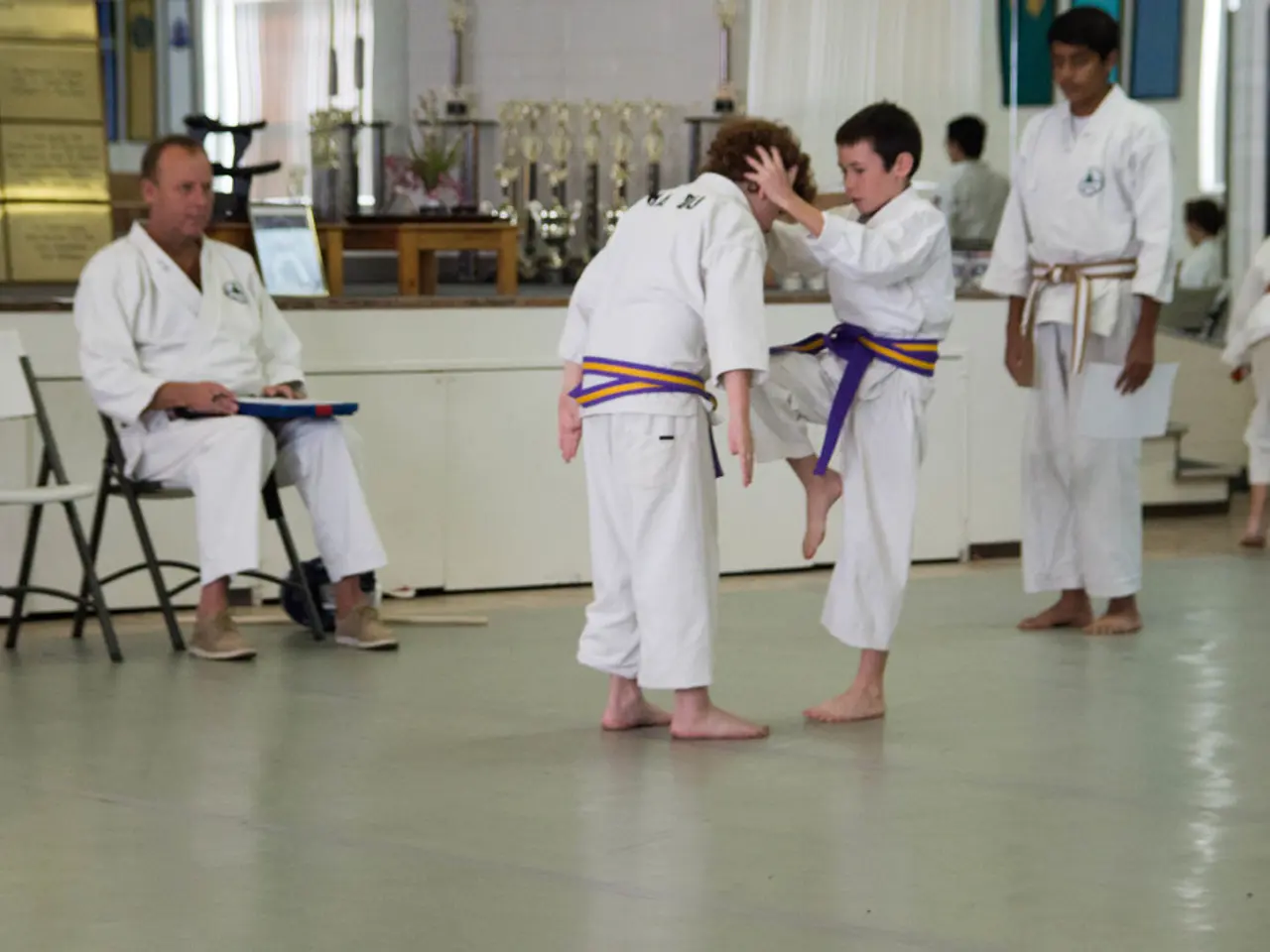Encouraging Respectful Behavior in Nigerian Kids Through Positive Discipline Strategies
In a significant shift towards gentle parenting, the focus on positive discipline is growing in Nigeria. Recognized as alternatives to traditional physical punishment, these methods prioritize respect, guidance, and education over fear or humiliation. By fostering a nurturing environment, positive discipline aims to raise emotionally intelligent and respectful children who will thrive at home and in their communities.
At the heart of positive discipline lies structured conversation, engaging children in discussions about their behaviour and expectations. This fosters understanding and responsibility rather than blind compliance, encouraging respect and communication within the family. Loss of privileges, behaviour charts, and time-outs provide clear, consistent feedback on behaviour, reinforcing positive actions while giving children time to reflect on negative conduct.
Crucial to the success of positive discipline is understanding local cultural values. Nigeria's diverse cultural landscape significantly influences parenting styles, with respect playing a vital role in Nigerian cultural values. By blending traditional practices with modern discipline strategies, parents can create a solid foundation for their children, aiding identity formation, value transmission, community connection, conflict resolution skills, and resilience.
Emphasizing empathy is another way positive discipline nurtures respect. By encouraging open discussions about feelings and choices, parents help children express their feelings and concerns. Guiding children through the problem-solving process equips them for future challenges by encouraging open dialogue, identifying conflicts, brainstorming solutions, evaluating solutions, choosing a solution, implementing the solution, and reflecting on the outcome.
Active listening stands at the core of positive discipline methods. When parents practice respect, children mirror this behaviour. Leading by example, demonstrating respectful behaviour daily is essential. Active involvement in children's lives encourages respect to flourish. By consistently enforcing boundaries and establishing clear expectations, parents instil accountability in children, building trust and nurturing respect.
Incorporating cultural practices with positive discipline enhances respect and understanding, creating a respectful and harmonious family environment. Acknowledging and celebrating achievements reinforces desired behaviours. To tailor positive reinforcement to Nigerian cultural contexts, utilize traditional praise, incorporate community acknowledgment, align rewards with cultural values, encourage respect for elders and peers, engage in cultural activities, and use storytelling as reinforcement.
Parents play a crucial role in teaching conflict resolution by modeling positive behaviour, using teachable moments, encouraging empathy, facilitating role-playing, providing praise and encouragement, teaching active listening, promoting teamwork, and engaging in cultural practices. Better conflict resolution is another long-term advantage of raising respectful children.
Strategies for overcoming the challenges of positive discipline in Nigeria include education on positive discipline, encouraging open dialogue, modeling positive behaviour, peer support groups, engaging trusted elders, and community support. Nigeria's emphasis on community and familial ties can be harnessed to promote positive discipline, fostering cooperation and problem-solving skills.
In summary, positive discipline in Nigerian families involves a shift from punitive measures to respectful, educational interactions that nurture character and understanding. This approach is supported by raising awareness, adapting cultural values, and employing consistent, constructive methods like conversation and consequence-based discipline. By embracing positive discipline, parents can nurture respect in their children, benefiting families for generations.
- The shift towards gentle parenting in Nigeria emphasizes social skills development, focusing on positive discipline as alternatives to traditional physical punishment.
- Positive discipline promotes healthier child development by prioritizing respect, guidance, and education over fear or humiliation.
- Homework discussions within positive discipline foster understanding and responsibility, encouraging respect and communication within the family.
- By blending traditional practices with modern discipline strategies, parents can support children's learning and discipline, aiding identity formation and value transmission.
- The loss of privileges, behavior charts, and time-outs in positive discipline provide constructive feedback on behavior, reinforcing positive actions and giving kids time to reflect on negative conduct.
- Incorporating nutrition and fitness-and-exercise into positive discipline promotes mental and physical health, ensuring well-rounded children and teenagers.
- Empathy is another key component of positive discipline, encouraging open discussions about feelings and choices to develop children's mental health and self-awareness.
- By practicing active listening, parents demonstrate respectful behavior and help children express their concerns, leading to improved behavior and better family dynamics.
- Engaging in education-and-self-development workshops helps parents master positive discipline techniques, better equipping them to nurture their kids' development.
- Collaboration with schools and community organizations can further support positive discipline, fostering a consistent approach to behavior management and discipline.
- Raising respectful, resilient children through positive discipline enables them to navigate their education and social environments effectively, building a brighter future for themselves and their communities.




